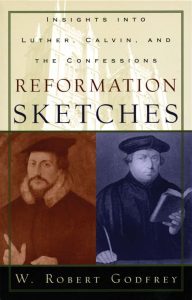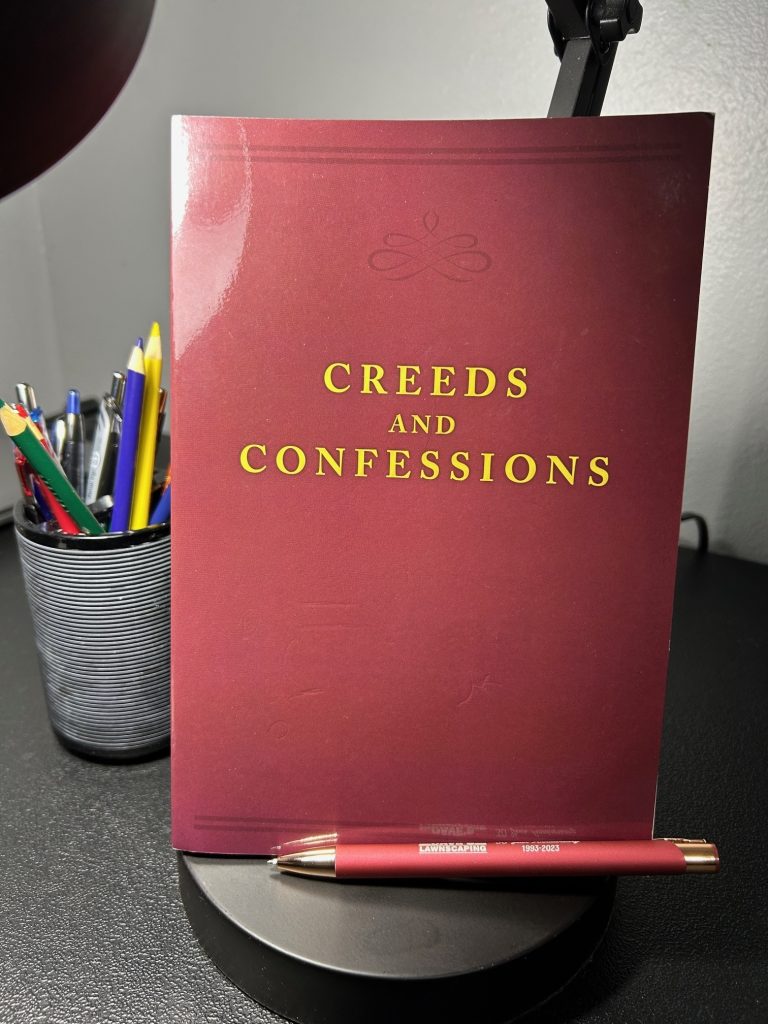 “First the Christian is a free lord of all, subject to none. Luther explicated that statement in relation to justification. As we live before God, as we live coram Deo, we are perfectly free. We are free from the law: free from the demands of the law, free from the threatenings of the law, free from the condemnation of the law. Luther was not saying that we do not need the law. We do need the law precisely to drive us from the law. We need the law to drive us to Christ. We do need the law to make clear to us how weak and hopeless we are before the demands of the law. We must be crushed by the law before we can ever understand the gospel. Luther at one point in his 1535 commentary on Galatians said that there were two uses of the law, one to teach civil righteousness and one to condemn us and to drive us to Christ. And he said that second use of the law is the principal use of the law. The second use of the law is:”
“First the Christian is a free lord of all, subject to none. Luther explicated that statement in relation to justification. As we live before God, as we live coram Deo, we are perfectly free. We are free from the law: free from the demands of the law, free from the threatenings of the law, free from the condemnation of the law. Luther was not saying that we do not need the law. We do need the law precisely to drive us from the law. We need the law to drive us to Christ. We do need the law to make clear to us how weak and hopeless we are before the demands of the law. We must be crushed by the law before we can ever understand the gospel. Luther at one point in his 1535 commentary on Galatians said that there were two uses of the law, one to teach civil righteousness and one to condemn us and to drive us to Christ. And he said that second use of the law is the principal use of the law. The second use of the law is:”
the theological or spiritual one, which serves to increase transgressions. This is the primary purpose of the Law of Moses, that through it sin might grow and be multiplied, especially in the conscience. Paul discusses this magnificently in Rom. 7. Therefore the true function and the chief and proper use of the Law is to reveal to man his sin, blindness, misery, wickedness, ignorance, hate and contempt of God, death, hell, judgment, and the well deserved wrath of God.
That is what the law teaches. Hence this use of the law is extremely beneficial and very necessary. For if somone is not a murderer, adulterer, or thief, and abstains from external sins as the Pharisee did (Luke 18:11), he would swear, being possessed by the devil, that he is a righteous man; therefore he develops the presumption of righteousness and relies on his good works. God cannot soften and humble this man or make him acknowledge his misery and damnation any other way than by the Law. Therefore the proper and absolute use of the Law is to terrify with lightning (as on Mt. Sinai), thunder, and the blare of the trumpet, with a thunderbolt to burn and crush that brute which is called the presumption of righteousness.
So the law has this absolutely necessary function for Luther.
We must realize that this condemnation function of the law is not primarily conceived by Luther as chronologically prior to the gospel. Luther does not mean that you preach the law until someone is crushed, and then you leave the law behind and move on to the gospel. Rather, Luther would say all our preaching to Christians throughout their lives must be a preaching of the law and the gospel. Christians never reach the place where they do not need the law to remind them of their sin, to remind them of their tendency to works righteousness, to remind them of the danger of living in their accomplishment and yet again and afresh to drive them to Christ. That was Luther’s great concern about the law. So he could say, ‘For although the Law is the best of all things in the world, it still cannot bring peace to a terrified conscience but makes it even sadder and drives it to despair. For by the Law, sin becomes exceedingly sinful.’ That was the great function and purpose of the Law. Therefore, for Luther, it was crucial to distinguish between the way the Law functioned for justification and the way in which the Law might function for other purposes…Luther insisted that the crucial work of the theologian is to distinguish the law from the gospel. If we do not understand that distinction, we have not understood the basics of theology, Luther said.
Luther insisted that the crucial work of the theologian is to distinguish the law from the gospel. If we do not understand that distinction, we have not understood the basics of theology, Luther said.
So what was the law for Luther? The law for Luther was the demands of God. Wherever you have demand, you have law, and that law is good, that law is holy, that law is spiritual. But its effect in the arena of justification will be only to drive one to despair. There is no healing in the law. There is no hope in the law because the law only holds up the demands of God that we cannot meet, that we cannot fulfill.
On the other hand, the gospel contained no demand. Then what was the gospel for Luther? The gospel was purely good news. There was no threat in the gospel. There was only promise.”
W. Robert Godfrey, Reformation Sketches: Insights into Luther, Calvin, and The Confessions, 16-18.
